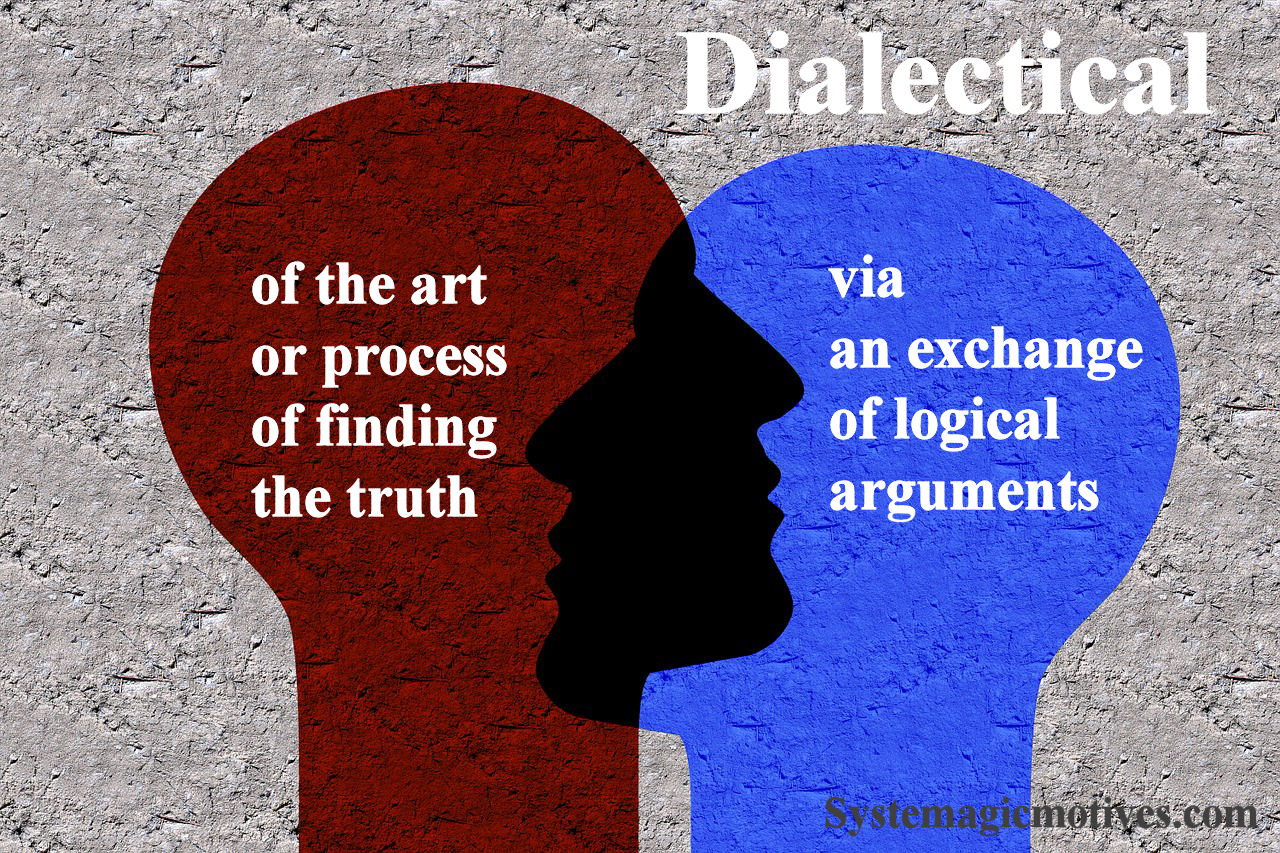In
philosophy, especially in the works of Hegel and Marx, the dialectical
method is foundational. Hegel�s dialectic involves the triadic
structure of thesis, antithesis, and synthesis, where a proposition
(thesis) is opposed by its contradiction (antithesis), leading to a
resolution (synthesis) that transcends the original conflict. Marx
adapted this method to analyze historical and social changes, focusing
on class struggles and contradictions as driving forces of societal
evolution.
Beyond
philosophy, "dialectical" extends to fields like psychology and
communication. In dialectical behavior therapy (DBT), for example, it
describes a therapeutic approach that balances acceptance and change,
helping individuals manage and resolve conflicting emotions. In
communication, dialectical principles aid in addressing and reconciling
opposing viewpoints, highlighting the importance of dialogue in
resolving conflicts and achieving mutual understanding.

